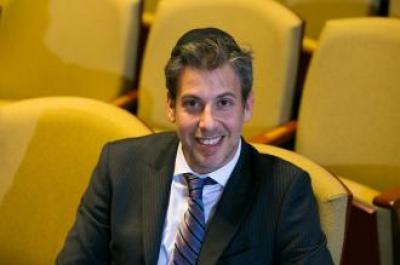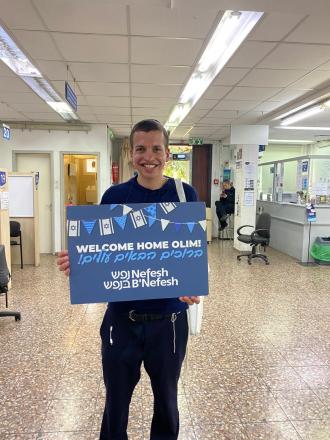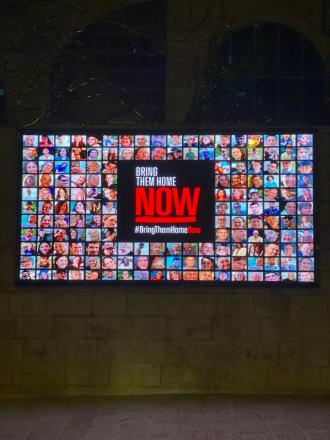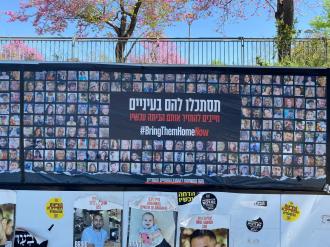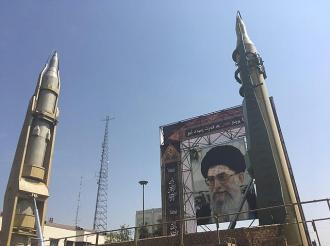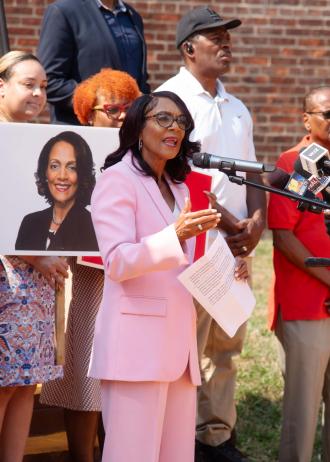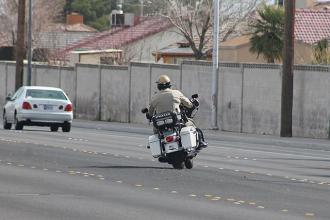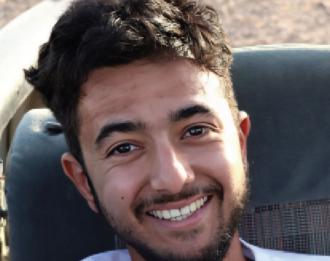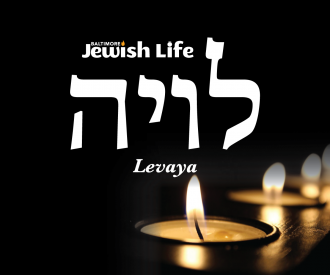It’s something I’ve often done, unfortunately.
An email or text comes that someone has passed away, and it’s the nature of my job that I often have to write some sort of appreciation. It doesn’t make one unfeeling, but it does teach a person to close their emotions from real mourning until the job is done.
I can say in all honesty that since that moment on motzei Shavuos when I heard the bitter news, I’ve been unable to access words. Unable to discuss it, to text or call any of our shared friends.
This is way too close to home.
Dovid was life. Chiyus and vitality and second chances. Dovid carried around a reservoir of life, the perfect word to lift whomever he encountered, the brilliant smile, pat on the shoulder that would send them on their way with their shoulders straighter.
It was the way he said, ‘Hey,’ when he greeted you- genuine happiness, but also an understanding of where you came from and respect for your journey.
Non-judgmental is in style these days, but faux-tolerance is so obvious. The real deal is rare.
He was that guy.
It sounds over-dramatic to say this, because we weren’t best friends: we didn’t even speak that often, especially recently. But Dovid Gutman was one of the most impactful friends I had. He changed me and I owe him the world.
I first met him during what would be the best period of his life, his glory years.
I was learning in Yerushalayim by Rav Dovid Soloveitchik and had gone to play baseball in Gan Sacher one erev Shabbos. He was on the other team, playing shortstop- with a cigarette in hand. One of my friends found it arrogant, and confidently told us on the bench, “I’m going to slam a hard grounder at that hotshot and send that cigarette flying.”
The batter’s turn came and, true to his word, he sent a sizzling grounder at Dovid. In a move that was pure poetry, Dovid positioned himself, placed the lit cigarette in his mouth, smoothly fielded the ball and threw the runner out at first- then he removed the cigarette and luxuriously exhaled.
I became his chassid at that moment.
I would become his friend after that- when I started learning in Mir for night seder and he sat nearby. With his long hair and untucked shirt, he sort of stood out- but everyone on those benches turned to him as flowers toward sunshine, waiting for his hello, his comments, even his questions in learning.
We were casual friends, nothing more.
Late that winter of 1997, I confided him that I wanted to leave Brisk for Mir, but finding a dirah wasn’t simple. I had many friends, but they all had good reasons, you know how it is… this one’s dirah was over-booked, the other one had flooding, the third was moving to the dormitory.
He looked at me. “Stop it. You’ll come to my dirah.”
I laughed, not expecting that the offer had any passing connection with reality.
I didn’t know him well enough yet. He repeated it the next night, and insisted I come see it. It was a prime location, right next door to yeshiva, attractive and spacious. The thing was, it was a Ner Israel dirah and I was an outsider.
Except that once I had Dovid’s friendship, I was an insider. I was his. He assured me that it would work out and if the others resisted, he would make space in his room.
The next zman I joined the dirah and was welcomed to a magical world- he was the king of the dirah, his warm, welcoming presence and exceptional ability to find humor and meaning in every minute drawing all sorts of people.
I remember how at one point, there were so many visitors to the dirah- his followers, we called them- that we divided up duties so that everyone who walked in would be greeted with a pleasant hello and a drink. He drew real yeshivishe types, the sort that were carrying doubts or insecurities they couldn’t share with anyone else- for them, the tall, handsome guy in the easy chair was better than any therapist.
There were the opposite types, guys long out of the system and disillusioned, who similarly came to the one person they trusted to listen and understand and never preach.
His generosity of spirit- and actual generosity- was boundless. People came to borrow money and eat his food and revel in his approach to life.
And late at night, very late, when the last of the visitors had gone, we would talk.
And the more exposure I had to him, to more I realized how badly I’d needed him in my life. Without ever being vicious or hurtful, he showed me how judgmental I was: with a deft sentence, he could turn a critical remark on its head. He showed me how narrow and unaccepting I was, how little I understood about people and real life. He overwhelmed me with his perspective. It was like going from being color-blind to suddenly being able to perceive shades and hues, to take in a much broader picture. Every person came with a background, a history, their challenges and disappointments and dreams.
The boys in that dirah learned, really learned, and he was part of that as well.
He was learning with Rav Avrohom Mordechai Freifeld during the mornings, and at one point he made a decision to switch to Mir and start going to Rav Yosef Elefant’s shiur. He was excited as a little child on the first day of school. I see him now with his new gemara and bright eyes- the optimism usually reserved for other people was focused inward, on himself!
And I cry yet again.
He had a picture of Rav Shlomo Freifeld on the wall of his room, and via Rav Avrohom Mordechai, he had access to a wellspring of Reb Shlomo stories. I had never really heard the name, and found myself spellbound.
Years later, when I wrote a book on Reb Shlomo, Dovid joked that he was a partner. In truth, Dovid was much more than that. I fell in love with Reb Shlomo specifically because he was the prophet: there was none more suited than he to deliver Reb Shlomo’s message.
Reb Shlomo once remarked that there is a mitzvah of V’halachta b’drachav, to emulate Hakadosh Boruch Hu’s ways. If so, Reb Shlomo said, man should try to imitate the Divine midda of Ve’Ata mechayeh es kulam, just as Hashem sustains all living things, man should work to give life to others.
Dovid, in this vort, there was no bigger talmid of Reb Shlomo than you!
I loved going places with Dovid. A random walk to yeshiva was an experience. He came into the great Mirrer beis medrash and people hoped he’d look their way and nod.
And Rav Nosson Tzvi loved him! We would regularly go to his Friday schmooze and then file by to say Gut Shabbos. The rosh yeshiva always broke out in a huge smile when he saw Dovid and often, he would reach out to slap him. Rav Nosson Tzvi got Dovid.
Dovid saw things in a way that no one else did. We were once sitting on the porch late on a Friday night and we saw a young Yerushalmi couple, seeming newlyweds, walking down the narrow Beis Yisroel street. The husband, in a gold kaftan and large shtreimel, said something and his wife giggled.
“See?” Dovid jumped up, “they make each other happy, they have the best marriages specifically because it’s all real, it’s all kept quiet. It’s not for other people.”
It was such a Dovid vort. I never knew anyone like him when it came to appreciating realness- or in being able to see deeper.
For a period, we learned Nesivos Sholom before shacharis. Dovid prepared coffee and relished each word- he loved when the author quoted short, powerful vertlach from earlier rebbes.
“That’s great,” he would enthuse, “that is so great.”
At the end of that glorious year, we flew home together for bein hazmanim, neither of us certain of future plans.
I went to Lakewood and he went to work, but we stayed in contact. One night, I met him a chasunah and he suddenly said, “I want to see what Lakewood yeshiva is like, I’m coming back with you.”
He did, and we arrived in middle of the night. Of course, being Dovid he somehow found a spare bed and someone who knew him and the next day he wanted to be led through the yeshiva, as if on a tour.
Eventually, he moved to Manhattan. He told me about his shul. He loved it, because ‘it’s this beautiful huge place with a really great rabbi, an amazing talmid chacham, and very few members.” It was perfect for him- a chance to give life to an older person, to blow his magic into a down-and-out place.
I remember how before I got engaged to my wife, I wanted him to meet her. I needed his approval, because in a weird way, I felt he knew the real me- he saw past the complexities. I wanted to make sure it was real.
We stayed in touch over the years. Once, he was going through a rough time and he came to Montreal specifically to daven at the kever of an ancestor buried in my hometown. I don’t think I’d ever seen him in a dejected state until that day.
Two winters ago, we spent some time together in Florida. I remember how he asked about my children, to see pictures. Then he said, ‘Thanks for not being uncomfortable about it, and being normal and showing it to me without squirming.”
It was profoundly sad, because the most real person had become someone people play games with and he couldn’t handle it.
The last time I saw him was when I came to be menachem avel eleven months ago. He tried to keep his chin up, teasing me about being afraid of his dog. He called me outside and, with the old light in his eyes, shared his mother’s favorite saying. ‘I only hope that Hashem is as happy with me as I am with Him.’
And then we parted ways. We texted a few times. He called me a few days before Shavuos this year, but I missed the call.
I was busy. You know, life, the regular, work, family…
I missed the call.
And that’s all part of the tragedy. He gave this gift to so many of us- the ability to really see- and yet when it was time to see him, we failed. We looked with our eyes, rather than his.
Rav Shlomo Freifeld once said that the two most beautiful words in the English language are: and yet. Dovid lived with the ‘and yet’, finding something deep and beautiful in dark times, dark places.
I’m not there yet, but I can try a different sort of ‘and yet’.
Dovid, you left us too young. You didn’t build the family you dreamt of. You never achieved the stability you thought was coming.
And yet, you lived and gave life. You sent spirits soaring. You saw the secret holes in the hearts of the mighty and filled them, your smile and words sent so many on their paths.
About Hashem, we say Ve’Ata mechayeh ess kulam. He sustains all. He gives life.
And He who gives, has taken. Yehi shem Hashem mevorach me’ata ve’ad olam.
